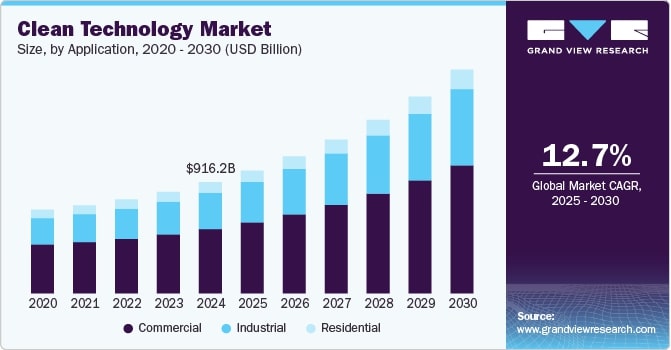
A new report from Cleantech for Europe suggests European VC money flowing into renewable energy startups fell to €1.8 billion in the first quarter of 2025 – an 18% drop from Q4 2024.
From the Green New Deal to Germany’s Energiewende, the EU has been at the forefront of the renewables transition. Have investors lost confidence in the push for Net Zero, or is the bloc's tech innovation just not up to scratch?
A sector in retreat
Total deal volume for renewable energy startups dropped from 181 to 152, eliminating what was looking like a recovery and reinforcing “how tenuous investor confidence in the sector has become,” the report’s authors wrote.
Germany led the pack with the most funding rounds, followed by Italy, France, Spain, and the Netherlands.
Across the bloc, however, only 17 of the EU’s 27 member states reported renewable-energy focused venture capital deals.
Getting more countries on board “remains a key challenge for the EU’s industrial ambitions,” the report's authors said.
All change
Why have VCs cooled on one of tech’s most reliable growth categories?
The sentiment shift reflects the trade and economic uncertainties that defined the first half of 2025. The Trump administration’s aggressive use of tariffs has caused upheaval in global financial markets and sent tech investors scrambling to reassess opportunities and risks.
Even before the global trade assault, the White House slammed the door on support for clean energy, walking away from the Paris Climate Accord within a week of taking office and killing federal subsidies for EVs.

‘Drill baby drill’ is the new energy mantra, while a recent XO paves the way for more nuclear power plants.
Tech investors have got the hint. The report notes that cleantech deal volumes are down in the US and China, too, highlighting the global reach of the Trump Effect and its impact on financial activity.
More concerning for the sector is a 43% collapse in the number of late-stage European cleantech deals.
Series B and growth funding rounds sank from 40 to 22, a level last seen in the third quarter of 2022. Debt financing in the sector is also sharply down. The precipitous drop suggests that current cleantech firms aren’t performing as hoped, or that investors see the timeline for a profitable exit being pushed back.
Victor Van Hoorn, Director at Cleantech for Europe, wrote that the backdrop of macroeconomic and political uncertainty “underscores the need to reinforce investor confidence through stability.
“In times of uncertainty, stability and predictability can result in gains.”
Rethinking Europe’s Cleantech Investment Mix
The cleantech category showing the most resilience is energy and power. Technologies focused on electricity generation captured more than half (53%) of total investment, fueled by the steady growth of power-hungry AI data centers.
“By 2030, European data centers alone could consume as much electricity as Portugal, Greece, and the Netherlands combined,” the report notes.
To grasp that opportunity, experts say the blend of public and private financing that has kept Europe’s cleantech sector aloft will need a remix.
Diego Pavia, CEO of European cleantech VC firm InnoEnergy, suggests the sector’s traditional reliance on state support has been an effective pillar, but mobilizing more private capital is the next logical step. He said:
“The investment opportunity for European cleantech is huge, but the scale of capital requirements demands a fundamental rethink in the way the EU finances its clean industrial revolution.”
Recent moves like the expansion of InvestEU have helped VCs de-risk cleantech investments, but Brussels will need to think beyond subsidies and guarantees. “Public finance cannot bear the cost alone. Private capital must do the heavy lifting,” Pavia says.
InnoEnergy’s portfolio companies alone will need another €160 billion before 2030. Pavia wants Brussels to consider new financial instruments that can act as a prompt for even greater inflows from tech VCs and institutional investors.
One suggestion is a dedicated EU fund that would attract private capital through the issuance of de-risked ‘green’ bonds.
Pavia believes that approach could capture up to €500 billion in private capital for cleantech startups over the next 15 years.
The take away
Despite a gloomy investment picture for the year to date, the report's authors see opportunity in instability.
“Europe is becoming less naïve and more strategic." Even if global trade tensions create more economic turbulence and financial market disruption, investors appear to be reassessing rather than abandoning European renewable energy tech. Sun may yet peer out behind the financial clouds.
"There is now a window to go beyond decarbonization and lead in cleantech “to reinforce Europe’s energy security and technology competitiveness.”


